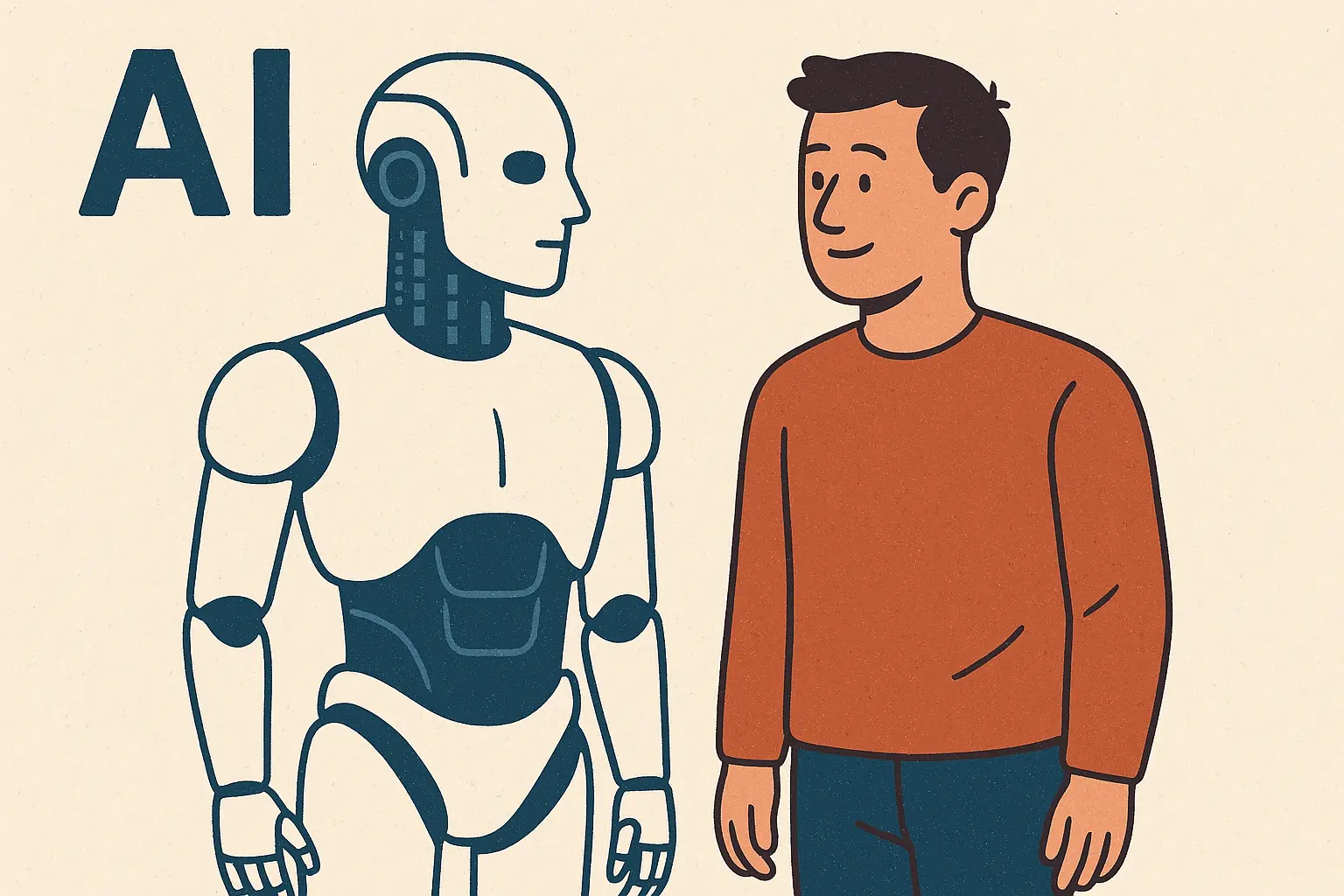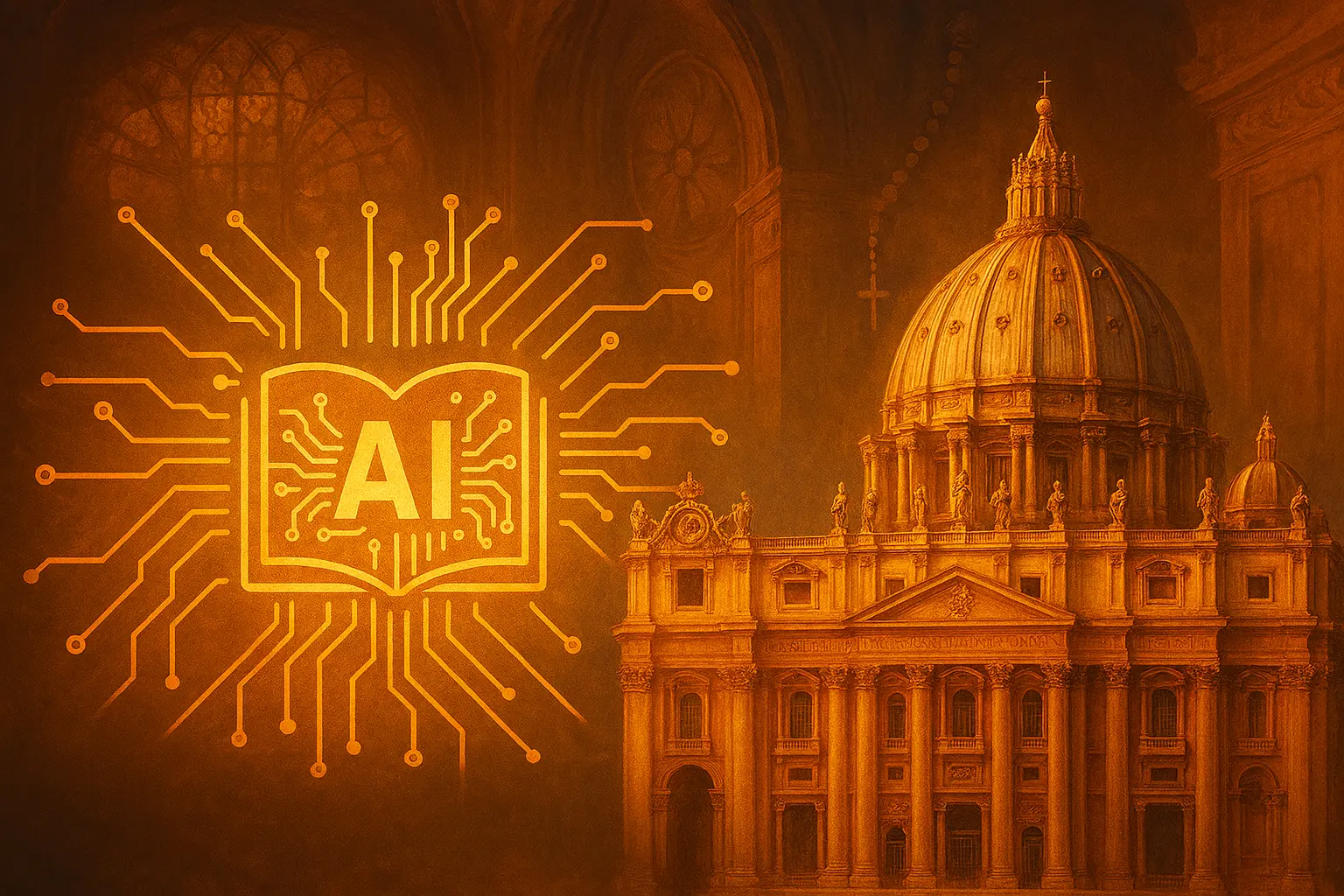
I flew from Los Angeles to Indianapolis last Sunday. Both flights, LA to Denver and Denver to Indianapolis, were full. On my second leg, I got settled and, after setting my iPad on the tray, I started reading a book, Nexus: A Brief History of Information Networks from the Stone Age to AI. The book examines how human cooperation relies on networks of information—and how these networks are inherently flawed. The author argues that the systems we create often predispose us to misuse them and that a central tension lies in the competing purposes of information networks: creating Order and producing Truths.
Fifteen minutes or so into the flight, the lady next to me said: “I could not help overlooking what you are reading. Are you a minister?” Though I was surprised by her question, I politely answered no, that the book was a history of information flows leading to how we may misuse Artificial Intelligence (AI) and that the chapter I was reading described the information network on the formation of religion and how the Bible had become the information network for Jews and early Christians, My answer led to a discussion over AI that lasted the remaining time of our flight.
She shared that she often has conversations about AI with her son who is a physicist living in Texas (she lives in Indianapolis, Broad Ripple, to be precise.) Her son, he said, claims that AI will soon lead to sentient robots, a claim with which she disagrees. She also shared her fears about AI, which gave me a glimpse of how most people feel about AI.
She confided that, at 72 years old, she had not grown up with computers; she had been a dancer “a hundred years ago” and later had become a dancer and arts teacher at a High School. AI, she said, is a technology too complex to fully understand. In talks with her son, she has learned that AI already does many mundane jobs but worries about too many people losing their jobs without retraining to new jobs.
Her biggest fear, though, is that the technology could wind up in the wrong hands and cause worldwide chaos. She thinks that AI may become too powerful and take control out of human hands.
I told her I share some of her concerns and that we need to put guardrails to ensure the technology moves in a positive direction that benefits the world and that is used responsibly and ethically.
I learned from our exchange what the average citizen thinks about AI – worries our government should not dismiss outright. I conveyed to her that AI is an exceptional technology with great potential to enhance our lives. But I also concurred that developers and politicians should ensure that the development of AI is aligned with our values and principles and develop ways to lessen the potential pains of a transition. With proper understanding and education, we can unlock the full potential of AI and use it to create a better future for all.

CUP's Catholic Take: The Use of AI
The heartfelt conversation in “AI and the Common Person” captures the awe and unease many feel about Artificial Intelligence (AI). The 72-year-old woman, a former dancer and teacher, voices real concerns about AI’s complexity, its potential to displace jobs, and the danger of it falling into the wrong hands, leading to chaos or loss of human control. These anxieties align with the Catholic Church’s timeless wisdom, which provides a moral compass for navigating AI’s challenges.
The Catechism of the Catholic Church teaches that every human, created in God’s image, possesses inherent dignity that technology must serve (CCC 1700). Science and technology, including AI, are “precious resources” when they promote humanity’s integral development (CCC 2293), but they must never overshadow the human person’s inalienable rights or true good (CCC 2294). The woman’s fear that AI could “take control out of human hands” echoes magisterial teaching that caution against a “theology of the disembodied,” where unchecked AI could erode human autonomy if not guided by moral principles.
The Church’s Magisterium emphasizes that AI must serve the common good and promote human flourishing. AI’s development requires discernment to ensure it respects human dignity and promotes justice. Just as Raul Zavaleta’s article calls for “guardrails” to direct AI toward positive ends. AI’s morality depends on human choices, urging us to avoid applications that lead to manipulation or dehumanization.
Cardinal Sarah has frequently warned against the dehumanizing effects of unchecked technological progress, emphasizing the need to preserve the human soul’s connection to God. Similarly, Bishop Strickland and Father Ripperger often stress the importance of aligning human endeavors with divine truth and moral order. These perspectives suggest that AI must be subordinated to God’s plan for creation, serving as a tool for stewardship rather than domination (CCC 2415).
Addressing the woman’s concern about job displacement, Catholic social teaching, rooted in the dignity of work, calls for proactive measures to support workers affected by technological transitions. The Church encourages retraining and education, as the article suggests, to ensure that AI enhances human potential rather than marginalizing individuals. This reflects the principle that technology must serve the common good, not just the interests of a few (CCC 2293).
Finally, the fear that AI could “wind up in the wrong hands” underscores the Church’s insistence on ethical responsibility. The Catechism warns that scientific advancements cannot claim moral neutrality (CCC 2294). Developers, policymakers, and society must ensure AI aligns with God’s will, respecting the integrity of creation and prioritizing human dignity. As Catholics, we are called to approach AI with hope and prudence, trusting in its potential to enrich lives while remaining vigilant to ensure it remains a servant of humanity, not its master.
As Catholics, we approach AI with hope and prudence, harnessing its potential to enrich lives while ensuring it aligns with God’s will. We should remember that AI is a tool at humanity’s disposal—we hold the wheel and must remain in control, guiding it with prayer, ethical discernment, and the Church’s wisdom to build a future that honors God’s creation.
